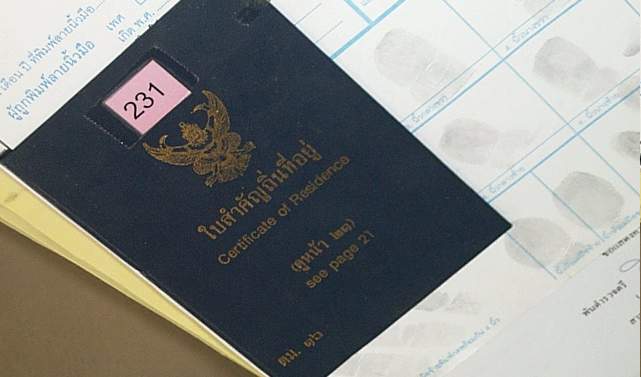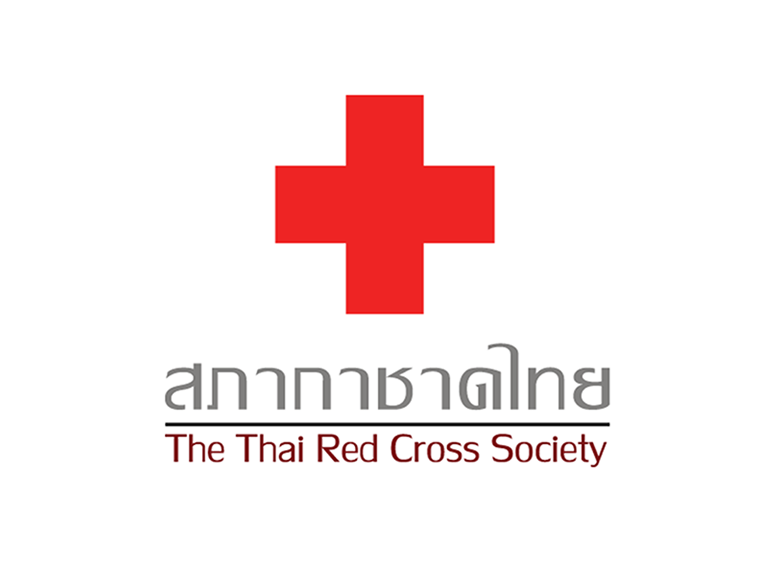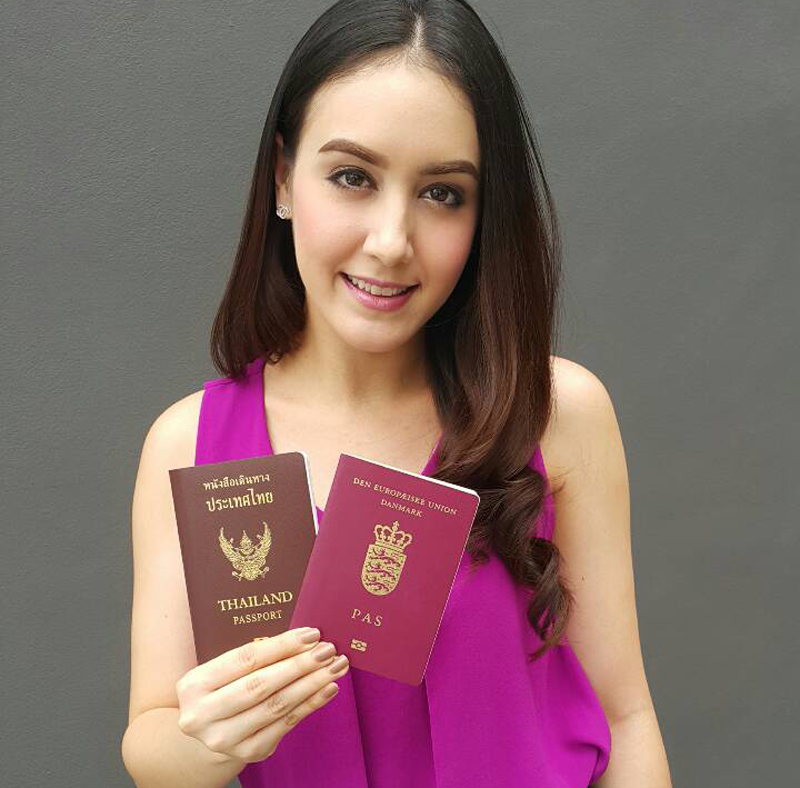The are estimated to be at least three million people of Thai ancestry living outside of Thailand.

A large proportion of these were born in Thailand but migrated away many years ago as children or young adults. Some went with their families. Some went for study and never returned, while others, where adopted out from Thai orphanages to (mainly) parents in western countries. These people went on to naturalise and become citizens of their new country and established their life there. Increasingly, many of these people are keen to explore their roots, and even, in some cases, look to move back to Thailand, but are frustrated by the lack of information about how they can do so.
Who needs to read this article?
This article explores the options and methods available for those who were born in Thailand, but then moved away, and who are looking at renewing their Thai identity documents which will allow you to live and work in Thailand without restriction.
Note: if you were born OUTSIDE of Thailand to a Thai parent, please read our article “Thai Citizenship When Born Overseas” instead.
There are a number of different ways of reclaiming your Thai citizenship, depending on your circumstances of how you left Thailand, and the number of existing Thai documents you have. This article will be based on the assumption that you have at least one or more of the following:
- A Thai birth certificate
- A copy of your old house registration
- An old Thai ID card
- An old Thai passport
- Thai relatives with valid Thai ID
Am I still a Thai citizen?
Many people write to this website asking how to ‘get back their Thai citizenship’, thinking they have lost it somehow. Others write saying they ‘gave up’ or ‘lost’ their Thai citizenship when they became a citizen of their new country (Thailand, for the most part, has no issue with people holding dual citizenship).
Based on the current Thai Nationality Act, anyone who is born on Thai soil to at least one Thai parent is a Thai citizen and REMAINS so, unless they give formally it up.
Furthermore, Section 39 of the Thai Constitution stipulates, “Revocation of Thai nationality from anyone who is Thai from birth shall be prohibited.”
What does it mean to formally give it up? It means that you’ve put in an application to the Thai Ministry of Interior, the Minister of Interior has signed off on the application, and the revocation has been formally been published in the Thai Royal Gazette (ราชกิจจานุเบกษา).
So, unless you formally have up given up Thai citizenship by this process, then quite simply – you are still a Thai citizen. You just are a Thai citizen who needs to re-establish your paperwork.
Reclaiming your Thai citizenship
Strictly speaking, you aren’t reclaiming your Thai citizenship. But what you are really doing is looking for the authorities to re-issue you with Thai Identification which all Thai citizens are entitled (and indeed must) hold. The main steps are outlined below
1) Don’t start with the Thai embassy (well mostly)
Most people will initially look to contacting the Thai embassy in the country they live in, ideally to get a new passport, only to find that the embassy isn’t being very helpful at all in helping you regain your Thai paperwork.
And the main reason is that the embassy really can’t help you get a new passport given how the Thai registration system works.
To get a new passport requires having a valid Thai ID card showing your 13-digit Thai ID number. To get a Thai ID card you need to be on the Thai house registration. All Thai people born in Thailand are normally registered on a house registration within 15 days of being born as a matter of course.
Though Thai embassies do issue new Thai ID cards for Thai citizens living overseas, you MUST get your first Thai ID card in Thailand. So, if you’ve left Thailand as a child, before getting your first Thai ID card, then the Thai embassy in the country where you live won’t be able to assist.
If you’ve got an old post 1984 ID card (with a valid 13 digit Thai ID number written in it), they may be able to issue you with a new one, on a case by case basis, or at the very least, the embassy MAY be able to provide you with an Thai emergency travel document, good for one entry back into Thailand. But don’t count on it.
2) You’ll need to travel back to Thailand
Thai district offices (สำนักงานเขต) are basically like mini-Town Halls (or City Halls for our US readers) where much of the administration of a particular district happens. They will also have an office which process peoples ID cards (บัตรประจำตัวประชาชน) and house registrations (ทะเบียนบ้าน).
If you don’t have many documents, the ideal first stop is the district office for the municipality where you were born. They will most likely have physical records of your original birth certificate and other details as to which house registration may be currently located.
3) Finding your Thai ID number

Your Thai ID number is the key to getting your Thai documentation re-issued.
If you have it, your Thai birth certificate will list the district office where your birth was registered at, right at the top. If you have an old passport or copy of a house registration, your ID number will be listed in their too under ‘เลขประจำตัวประชาชน’
For anyone born post-1984, the Thai ID number will follow the modern Thai ID 13 digit numbering system which will be current and stay with you for life.
The ID number will be particularly important to track down your records.
What if I was born before 1984?
Fear not! Plenty of people born pre-1984 have successfully reclaimed their Thai documents.


However the route is probably slightly more cumbersome given you will be dealing with an era of paper records and old form ID numbers, and the officers at the district office will likely need to go through the archives to cross match information. A huge process of digitization of old records has been ongoing in the past few years, so ideally an officer will be able to find your records on the system, scanned. But if that’s not yet the case, they will have to physically dig through old archive records.
4) Dealing with the district office
At the end of your time at the district office you will want to walk out with two things:
- A copy of your house registration
- A new Thai ID card
This will all take a few visits, but this is normal. Below we discuss how your visit to the district office will play out.
Understanding the district office’s mindset
Before we go any further, it’s important to understand the following as it will help you be patient with the process.
- The district office will view your application to renew your Thai identity documents as a partial investigation. They’ll want firm evidence to proceed to show that the person standing at the district office (i.e. you!) and the one listed in the old documents are the same people.
- The officer who you’ll deal with will only be able to re-issue you with Thai documentation if the weight of evidence is overwhelming that you are the person you claim to be. Unfortunately, unscrupulous and corrupt district officers have essentially been selling identities to foreign nationals looking to remain in Thailand. As a result of the crackdown against this, district officers will probably be highly cautious.
Your house registration
All Thai citizens born in Thailand are listed on a house registration within 15 days of birth. Normally this is at a family related residence. For those who have been out of Thailand for a while, there are normally two scenarios as to where your name is currently registered.
- You remain registered on the house registration that you were originally on.
- Your name has been shifted off that house registration to the Central House Registry (ทะเบียนบ้านกลาง) which if for those Thai citizens who have no registered address in Thailand. If you find your name has been moved there, you need to have your house registration moved back to a regular house register.

So long as you have a valid Thai ID number, ANY district office in Thailand will be able to cross reference your records with their digital records on the national database, using your Thai name and unique Thai ID number which was allocated at birth, and tell you where you are currently registered.
Assuming you are on an existing house register (and the owner of the house register is happy for you to remain on it) then you need to proceed to get an ID card. The best place to do this if you’ve been away for a while is at the district office where you are currently registered.
If you find out that you are currently on the Central House registry, then you need to have your name moved off that (the district office will know how) onto a regular house register. You will need the permission of the head of the house register for that address to allow your name to be put on.
What (and who) to bring
This is all ultimately at the discretion of the district office you deal with, but here is a good list to start with (if you can!). Original is preferable, but copies can be useful:
- Bring ANY and ALL Thai documents that you have.
- Also bring ANY and ALL current foreign documentation (eg foreign passports) showing your name and dates of birth etc.
- Bring ANY and ALL documents belonging to your parents (especially your Thai citizen parents), as that will be useful for officer to further cross reference information.
- If your current name is not the same as your Thai name, bring any evidence which links you to your name change. This is crucial, as the district officer will won’t be able to assist you if the names don’t EXACTLY align (in the case of adoptees, this may simply be your adoption papers, court proceedings listing your adoptive parents surnames and your ‘new’ name).
It is also helpful, wherever possible, to bring with you your Thai parents, or other Thai speaking relatives or close friends. While this may seem quaint to foreigners, part of the process is to have at least two Thai national witnesses to ‘vouch’ for your identity and is total standard procedure.
Even when the evidence is overwhelmingly clear, the district officer will likely need approvals from senior people in the office to approve the re-issuing with Thai card. This will likely take some time, slow things down and in some cases, drag the matter out for weeks, if not months. This is more likely the case in rural areas, but just be aware it may happen.
The district officer will take all of the evidence provided and may ask for more – requests like certified translations of your foreign documents are pretty common additional requests. So long as the documents line up and the officer is satisfied, then your Thai ID card can be re-issued and from that you can apply for a Thai passport.
Thai DNA test
If the documents don’t match up, or what you provide isn’t sufficient for the district office, or you simply don’t have any, then there is one final option: a DNA test to prove your right to Thai nationality.
Given that Thai citizenship is passed down by blood, then a DNA test to an existing Thai relative will be sufficient get your Thai ID sorted. We write about that process in this article “Thai citizenship using DNA Testing”. For those who have struggled to get their paperwork to a level needed for the district office to be satisfied, the DNA test is the clear way to go.
5) What if I was adopted from Thailand?
People born in Thailand and then adopted abroad also form a large portion of people looking to reclaim their Thai nationality.
From Thailand’s perspective, the fact you were adopted and raised abroad DOES NOT extinguish your Thai nationality. If you are in this group, the process to reclaim your Thai documentation is exactly the same, but with one added step at the start.
The best starting point is to contact the orphanage which dealt with your adoption. From our experience orphanages are meticulous record keepers and will have access to all your records from your time in Thailand. Most of them also have significant experience in helping people reclaim their Thai documentation.
They will also – in 99% of case – be the location of your house registration in Thailand. As such, in cases we have seen, staff from the orphanage will be able to accompany you to the district office and confirm your identity, to help you get your ID card re-issued and cement your Thai citizenship documentation, making the process quite seamless.








Thank you! I just wanted to share a success story about reclaiming my Thai citizenship! Here’s my background: I was born in Bangkok, Thailand, and then adopted by an American couple as a baby. I grew up in Los Angeles, and lived in the US until about two months ago, when I decided to move here (with my cat), reclaim my Thai citizenship, and live in Thailand.
Documents I was in possession of: current US passport, original Thai birth certificate (in Thai with an attached English translation), and original Thai passport from the 80s with a picture of me as a baby. Documents I was not in possession of: anything that linked me with my current legal name (an American name) to my original Thai birth name.
I established that I, with my original Thai birth name, existed, we needed to go to the district office to try and obtain a Thai ID. Luckily this was close by, as I was born in Chulalongkorn Hospital. I’ve been told that some people have to travel outside of Bangkok to go to the original orphanage where the other person was adopted. Since my orphanage was the Red Cross Children Home, we never had to leave the city!
2. The district office found my original birth certificate, which matched perfectly (carbon copy) with the one that I had. They explained that since I had nothing linking my current name to my birth name, we needed to go to the Red Cross orphanage and get a couple of people to vouch for me. They also mentioned needing information regarding my house registration (tabien baan).
3. At this point it occurred to me that I MIGHT actually already have a document linking my current name to my original Thai name. This was after I’d spent quite a bit of time trying to track down a court record of my name change — there must have been one, or so I thought. But I was mistaken: the name change happened when my parents officially obtained my US citizenship in 1991. You can, apparently, do the name change and the citizenship thing all in one go if you’re adopted, and it was all on my certificate of citizenship. There was only one problem: I’d left it in the states with my mother, who was currently on holiday in Scotland. Luckily, my brother was able to scan it and send me the file.
4. I visited the wonderful people at the Red Cross Children Home. I brought my US passport, my state ID, and a driver’s license — anything that could prove that I was who I said I was. It was explained that they would need to have a private meeting to determine the likelihood of my actually being this person. Then they would come with us to the district office and help me obtain my very first Thai ID.
5. The Red Cross Children Home also told me that I was still registered with them (tabien baan). This was an extremely lucky break, because otherwise we might have had to contact biological family members to come vouch for me — an awkward situation at best, and something that surely would have made this process exponentially longer. We were racing against time, because my visa to be in Thailand was running out!
6. Apparently, this process of having two people come to the district office to vouch for you is not an out-of-the-ordinary request. I am very new to this concept, so I’m sure others will have some more information, but I will say that I was so incredibly grateful for these two people from the Red Cross Children Home. They had all the paperwork that was needed for this, and were familiar and friendly with the staff at the district office.
7. I won’t lie — I teared up a little when I got my first Thai ID! The district office also found my original adoption papers and even had pictures of my adoptive parents. Someone had also contacted my birth father — that must have been awkward! But he confirmed the story.8. We were also able to change my legal name from my birth name to my US name so that all my documents matched!Once you have a Thai ID, it seems like a relatively easy process to get a Thai passport. Given I had entered Thailand on my US passport I was also able to extend my American visa for a year-long stay based on the visa people with Thai ancestry can get (I’ll have to leave the country at some point to close out that stamp, but at least I now have a year to do it!). This post is long enough, though, so I’ll close it here!
Did you speak Thai prior to starting the process?
No need to speak Thai, but having someone there to speak Thai or translate will help things.
Can i go to any district office to get my first ID card ?
no, you should go to the district office where you are registered.
I was born in Canada, my mother is Thai, I am in the process of obtaining my Thai citizenship. I have my Thai birth certificate and my first Thai passport. All that I have left is to obtain an ID card and be registered on the house registration.
I guess my question is, once that is all completed, is that it? There is no other process for Thai citizenship?
Hi there – once you have done that then you will have everything you need!